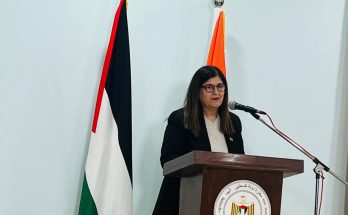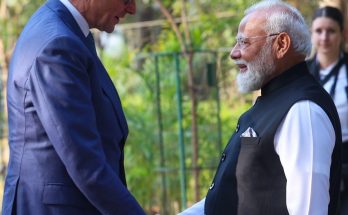By Shweta Aggarwal
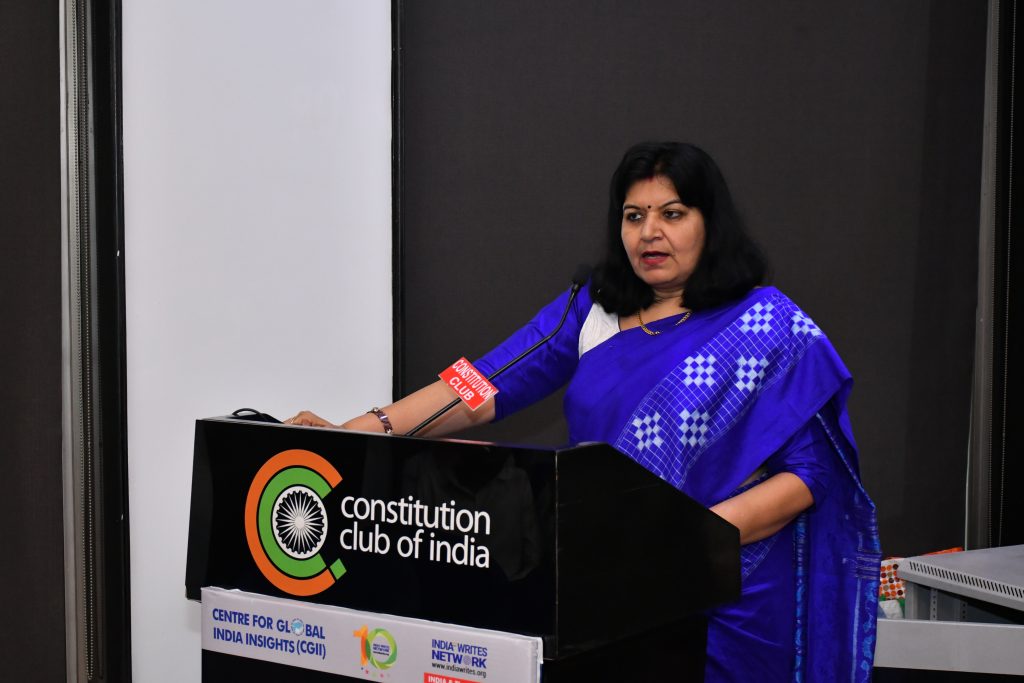 More than three months after the Pahalgam terror attack, eminent parliamentarians, diplomats, and defence experts lauded Operation Sindoor and underlined the imperative for national unity to tackle cross-border terrorism.
More than three months after the Pahalgam terror attack, eminent parliamentarians, diplomats, and defence experts lauded Operation Sindoor and underlined the imperative for national unity to tackle cross-border terrorism.
In a swipe at the then Congress government, BJP MP Aparajita Sarangi said that Sindoor-like strong retaliatory action should have been taken after the 26/11 Mumbai terror attack. “What happened on the 7th of May, under the name of Operation Sindoor and the guidance of Prime Minister Narendra Modi and senior leaders, should have occurred after the Mumbai attacks in 2008,” Ms Sarangi said at a seminar in New Delhi on July 23.
“The outcome was extremely positive in the sense that we did avenge the murders of those 25 husbands and one Nepali tourist. Prime Minister rightly called the entire thing Operation Sindoor,” Sarangi, BJP MP from Bhubaneswar. “The campaign was termed as Operation Sindoor because we all stand by our mothers and sisters and daughters who were deprived of the remaining portion of their life, the company of their husbands.”
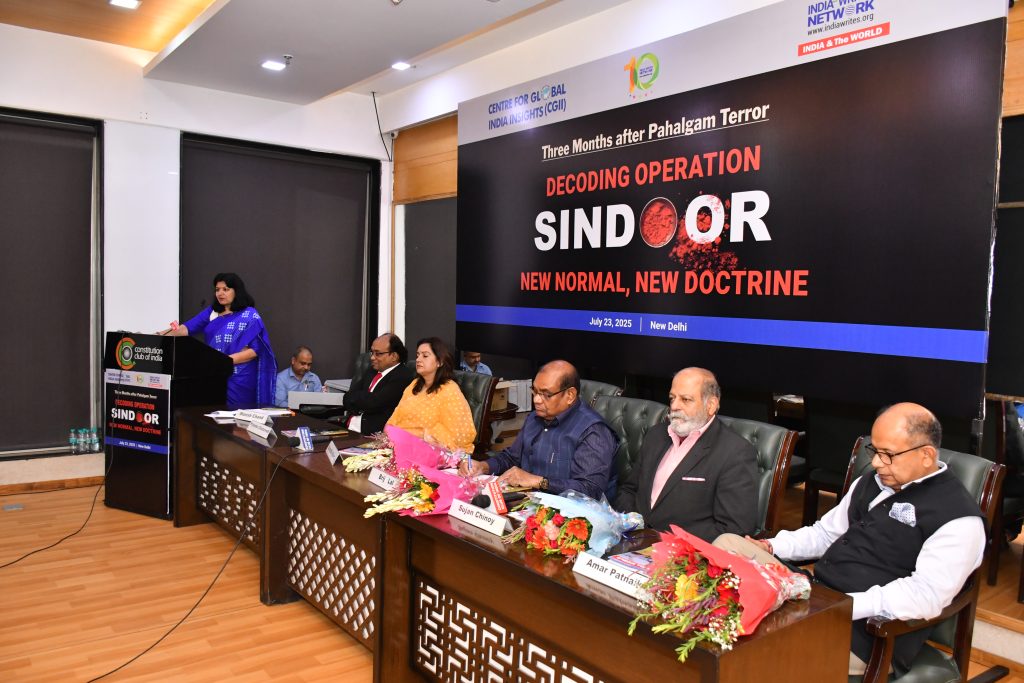 Setting the narrative straight, the BJP MP also confirmed that the ceasefire resulted from “mutual discussion and mutual deliberation” between the Directors General of Military Operations (DGMOs) of Pakistan and India, thereby repudiating repeated claims of the US to have brokered the ceasefire.
Setting the narrative straight, the BJP MP also confirmed that the ceasefire resulted from “mutual discussion and mutual deliberation” between the Directors General of Military Operations (DGMOs) of Pakistan and India, thereby repudiating repeated claims of the US to have brokered the ceasefire.
The conference titled “Decoding Operation Sindoor: New Normal, New Doctrine,” marking three months since the April 22 Pahalgam terror attack, was organised by Centre for Global India Insights (CGII), a think tank focused on global affairs.
More than a month after the Pahalgam terrorist attack, Ms Sarangi travelled to Indonesia, Malaysia, South Korea, Japan, and Singapore as part of a multi-party delegation of MPs to project India’s viewpoint in the aftermath of “Operation Sindoor.
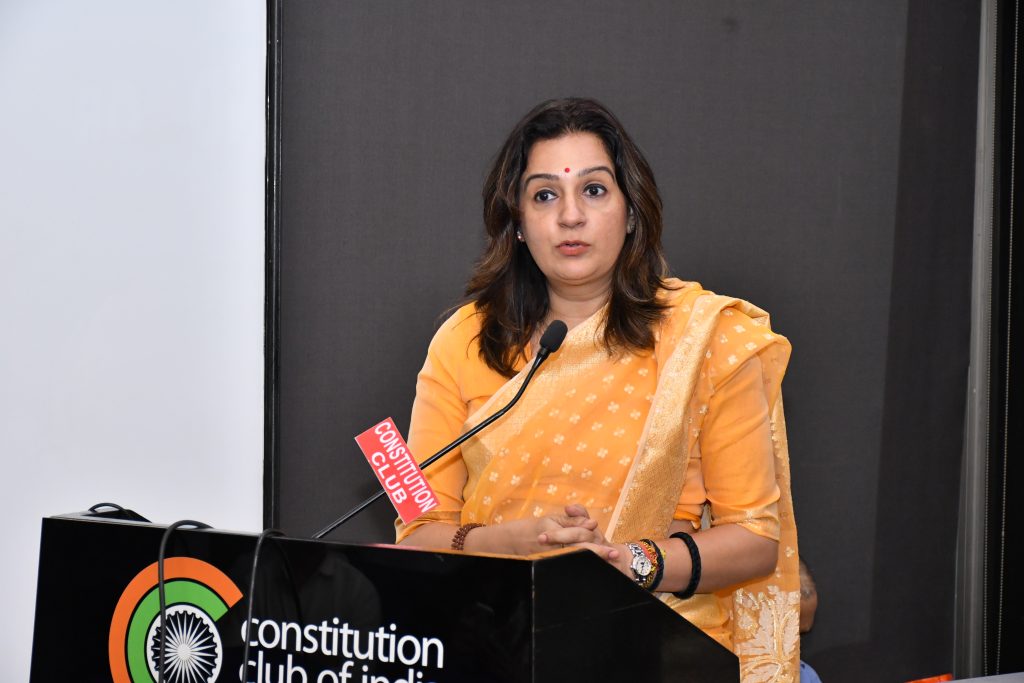
In her remarks, Chaturvedi, MP and national spokesperson of Shiv Sena (UBT), emphasized that the purpose of the all-party delegations was to strengthen India’s fight against terrorism, which remains incomplete if the international community continues to provide aid through funding mechanisms that ultimately support terrorism funded by taxpayers’ money.
“We need to follow the money trail. And the minute we control that we will probably be able to control this entire demon that is residing in Pakistan,” she said.
“No country can progress, if terrorism continues to thrive and one particular nation allows it to thrive,” she added.
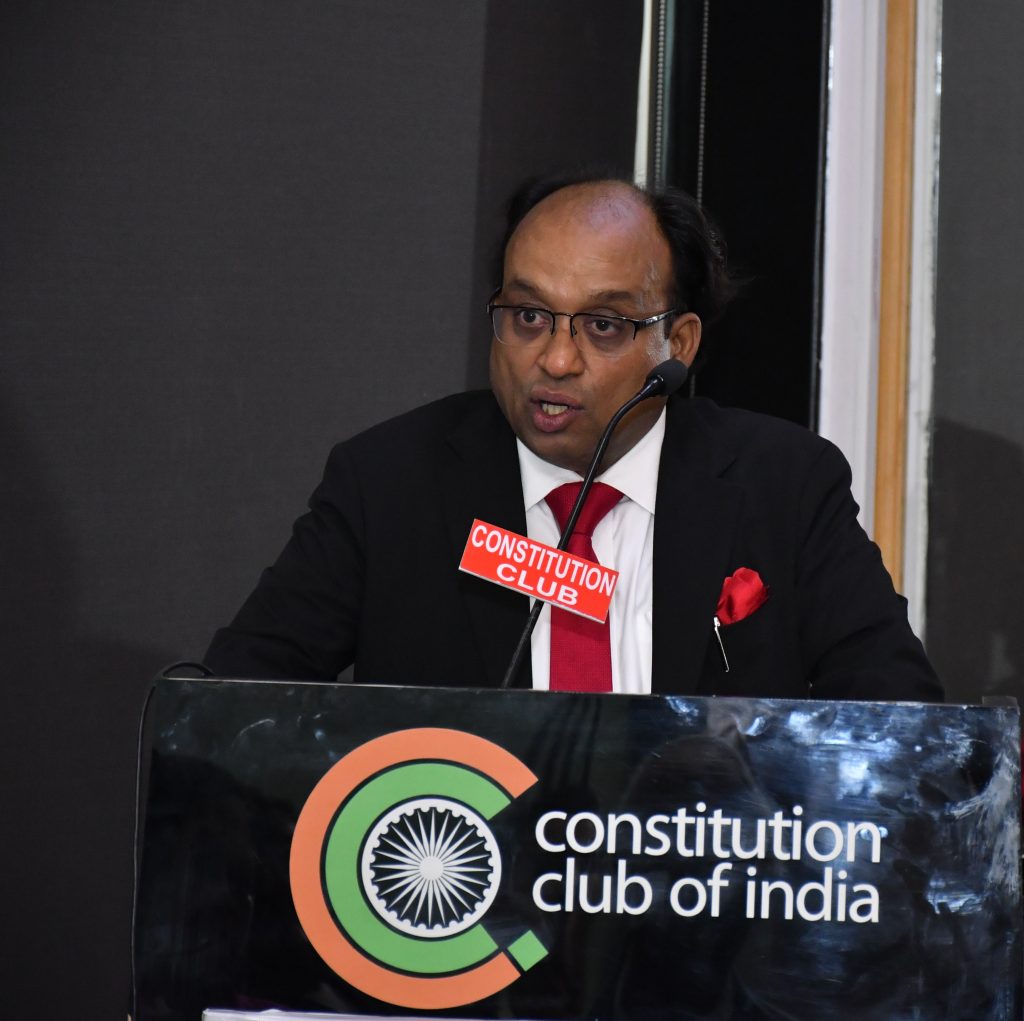 “This calibrated paradigm-shifting retaliation against the butchers of Pahalgam, which took barely 22 minutes, ended decades of strategic patience, ushering in a new era of offensive defence. The military strikes by India vividly sent the signal that that from now onwards, it will be blood for blood,” said Manish Chand, CEO, Centre for Global India Insights. “Operation Sindoor is still on; India cannot afford to let its guards down. Eternal vigilance is the only way to go,” he said.
“This calibrated paradigm-shifting retaliation against the butchers of Pahalgam, which took barely 22 minutes, ended decades of strategic patience, ushering in a new era of offensive defence. The military strikes by India vividly sent the signal that that from now onwards, it will be blood for blood,” said Manish Chand, CEO, Centre for Global India Insights. “Operation Sindoor is still on; India cannot afford to let its guards down. Eternal vigilance is the only way to go,” he said.
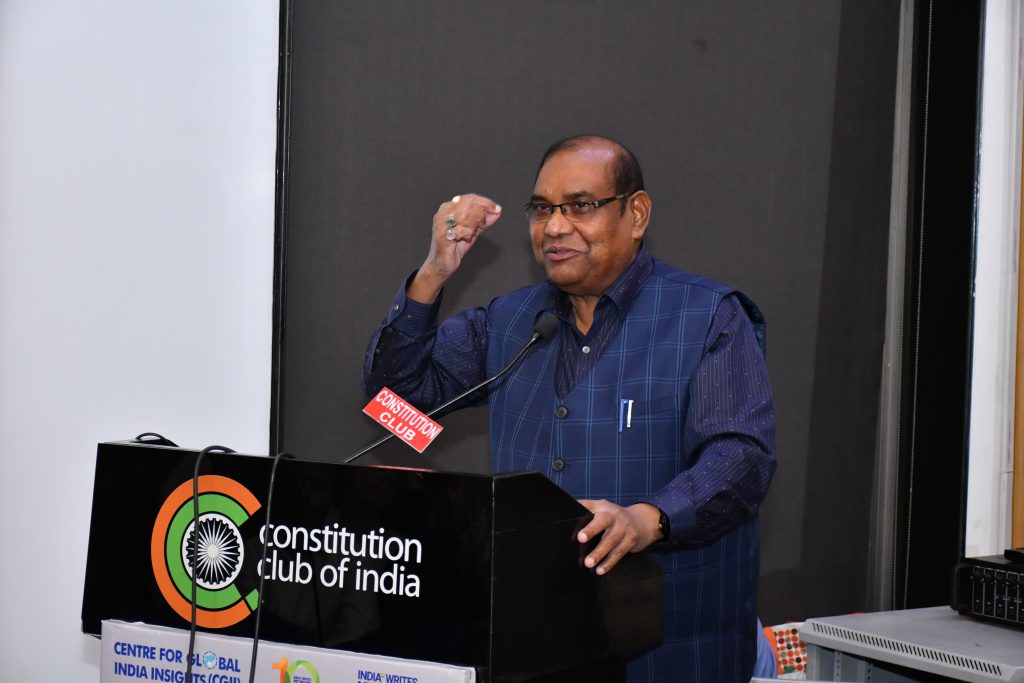 Brij Lal, a former IPS officer-turned politician, lauded bold action taken by the government in the form of Operation Sindoor and criticised previous governments who would simply ‘condemn’ acts of terror in the past. He emphasized that India will respond decisively to every attack on its forces and citizens. Mr Lal, Member of Parliament (Rajya Sabha), proposed the construction of a Sindoor memorial at Baisaran Valley as a symbol of the historic operation, which the Prime Minister agreed to under his own signature.
Brij Lal, a former IPS officer-turned politician, lauded bold action taken by the government in the form of Operation Sindoor and criticised previous governments who would simply ‘condemn’ acts of terror in the past. He emphasized that India will respond decisively to every attack on its forces and citizens. Mr Lal, Member of Parliament (Rajya Sabha), proposed the construction of a Sindoor memorial at Baisaran Valley as a symbol of the historic operation, which the Prime Minister agreed to under his own signature.
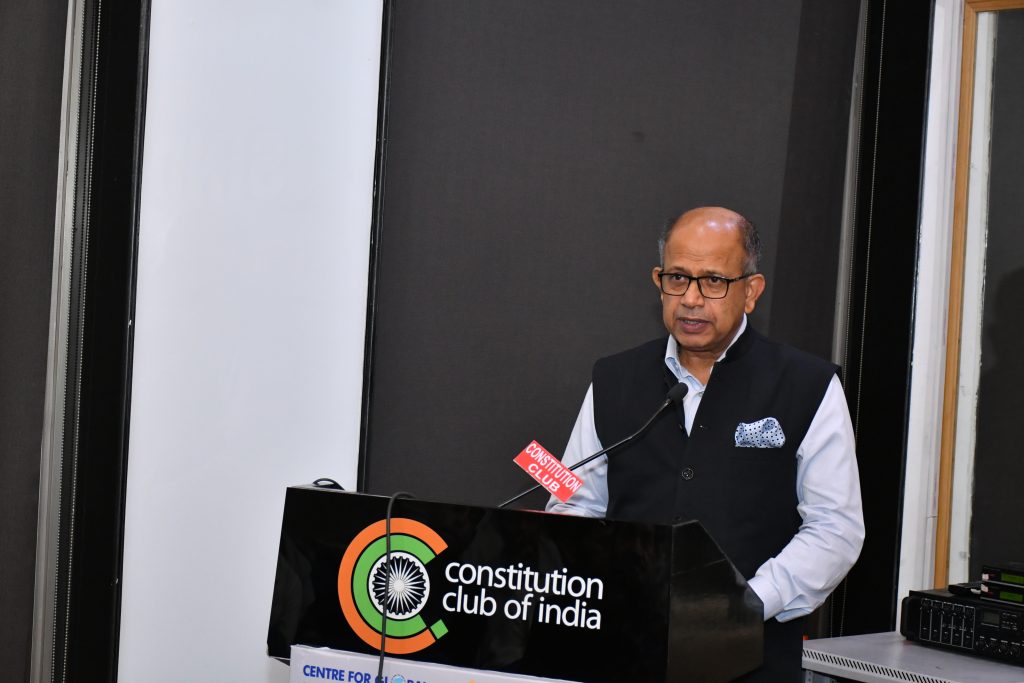 Former Member of Parliament Amar Patnaik urged the audience not to view Operation Sindoor merely as a military response to an act of terror, noting that there are various ways to respond, with military action being the last resort.
Former Member of Parliament Amar Patnaik urged the audience not to view Operation Sindoor merely as a military response to an act of terror, noting that there are various ways to respond, with military action being the last resort.
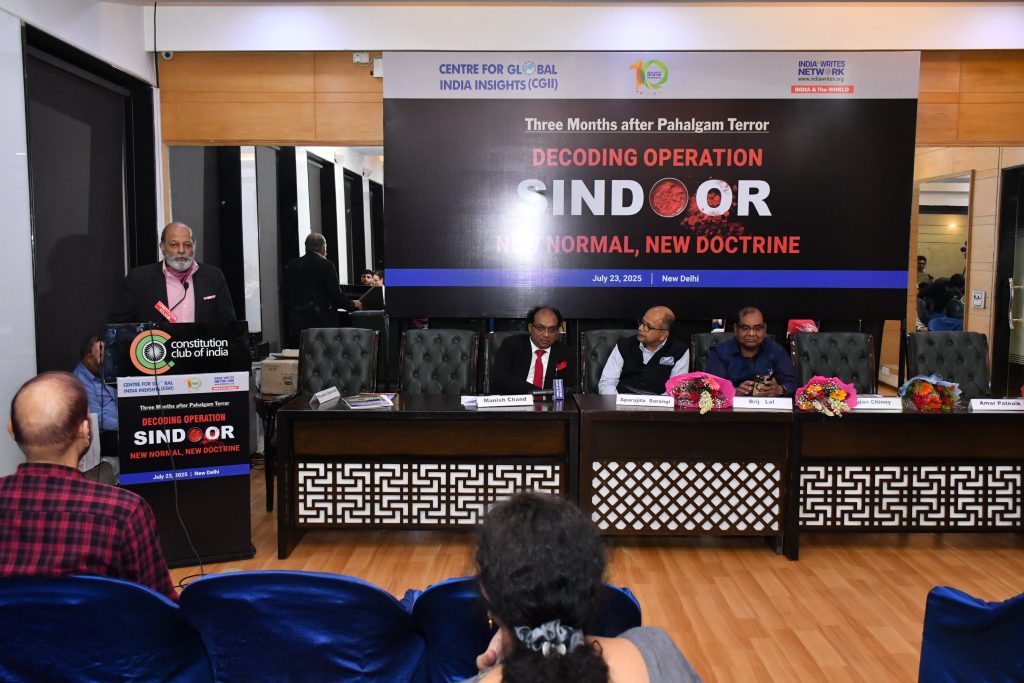 Sujan Chinoy, Director General, Manohar Parrikar Institute of Defence Studies and Analyses who also travalled to different countries, as part of multi-party delegations, emphasized the importance of traditional intelligence gathering, building secure communication, and relying on domestic real-time location updates. He called for the development of domestic standards and certification of defense equipment to truly make India ‘Atmanirbhar’ in the defence sector.
Sujan Chinoy, Director General, Manohar Parrikar Institute of Defence Studies and Analyses who also travalled to different countries, as part of multi-party delegations, emphasized the importance of traditional intelligence gathering, building secure communication, and relying on domestic real-time location updates. He called for the development of domestic standards and certification of defense equipment to truly make India ‘Atmanirbhar’ in the defence sector.
Calling for enhanced readiness to prepare for the spectrum of conflict, not only conventional but also cyber, grey-zone, Lt. Gen. (Retd.) Syed Ata Hasnain underlined that Operation Sindoor was not a reactive action, but part of a well-thought-out effort to shape the battle space. This is deterrence by punishment, yes, but also by denial, deception, and disruption.”
Air Vice Marshal (Retd.) Anil Golani, Director General, Centre for Air Power Studies (CAPS) pointed out that India achieved not only tactical success but also psychological ascendancy from Operation Sindoor. “Our adversaries, and even our allies, now recalibrate their perception of India’s threshold,” he said. He called for strengthening jointness among the tri-services, stating that the future demands integration not only of command structures but also of narratives, data, and objectives.
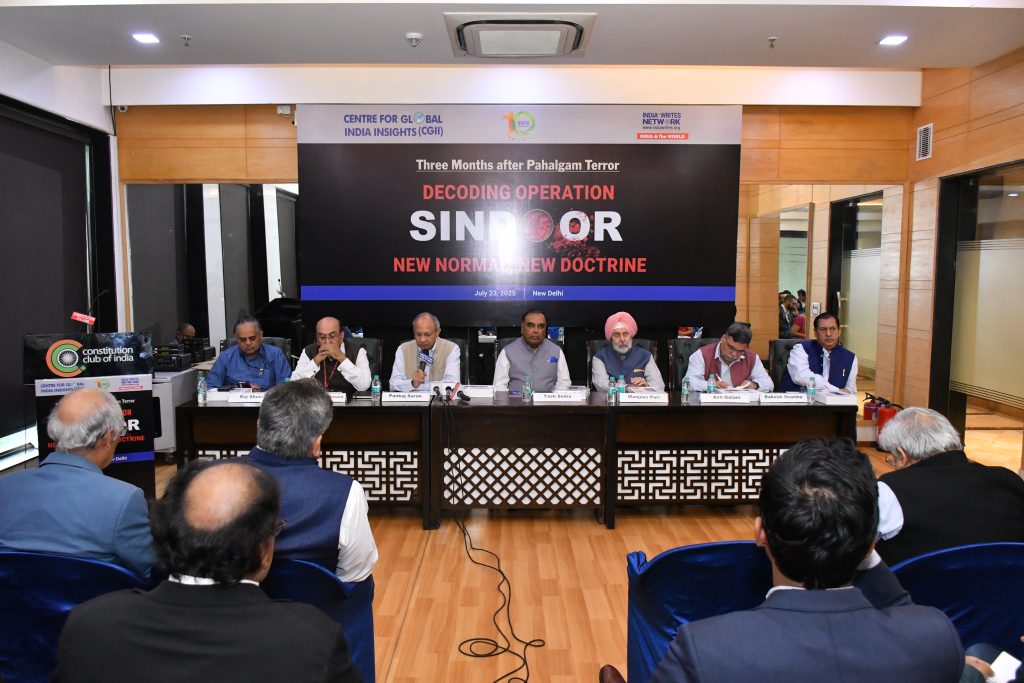 Y.K. Sinha, a former diplomat who handled Pakistan Desk in India’s Ministry of External Affairs, highlighted how the precision and messaging of Operation Sindoor enhanced India’s standing among key global players. “The international community is increasingly viewing India as a stable, confident power that is willing to act decisively, but responsibly.” He stressed the role of strategic communication, especially post-operation, in building global consensus and moral legitimacy.
Y.K. Sinha, a former diplomat who handled Pakistan Desk in India’s Ministry of External Affairs, highlighted how the precision and messaging of Operation Sindoor enhanced India’s standing among key global players. “The international community is increasingly viewing India as a stable, confident power that is willing to act decisively, but responsibly.” He stressed the role of strategic communication, especially post-operation, in building global consensus and moral legitimacy.
Author Profile
- India Writes Network (www.indiawrites.org) is an emerging think tank and a media-publishing company focused on international affairs & the India Story. Centre for Global India Insights is the research arm of India Writes Network. To subscribe to India and the World, write to editor@indiawrites.org. A venture of TGII Media Private Limited, a leading media, publishing and consultancy company, IWN has carved a niche for balanced and exhaustive reporting and analysis of international affairs. Eminent personalities, politicians, diplomats, authors, strategy gurus and news-makers have contributed to India Writes Network, as also “India and the World,” a magazine focused on global affairs.
Latest entries
 DiplomacyJanuary 5, 2026India walks diplomatic tightrope over US operation in Venezuela
DiplomacyJanuary 5, 2026India walks diplomatic tightrope over US operation in Venezuela India and the WorldNovember 26, 2025G20@20: Africa’s Moment – The Once and Future World Order
India and the WorldNovember 26, 2025G20@20: Africa’s Moment – The Once and Future World Order DiplomacyOctober 4, 2025UNGA Resolution 2758 Must Not Be Distorted, One-China Principle Brooks No Challenge
DiplomacyOctober 4, 2025UNGA Resolution 2758 Must Not Be Distorted, One-China Principle Brooks No Challenge India and the WorldJuly 26, 2025MPs, diplomats laud Operation Sindoor, call for national unity to combat Pakistan-sponsored terror
India and the WorldJuly 26, 2025MPs, diplomats laud Operation Sindoor, call for national unity to combat Pakistan-sponsored terror






